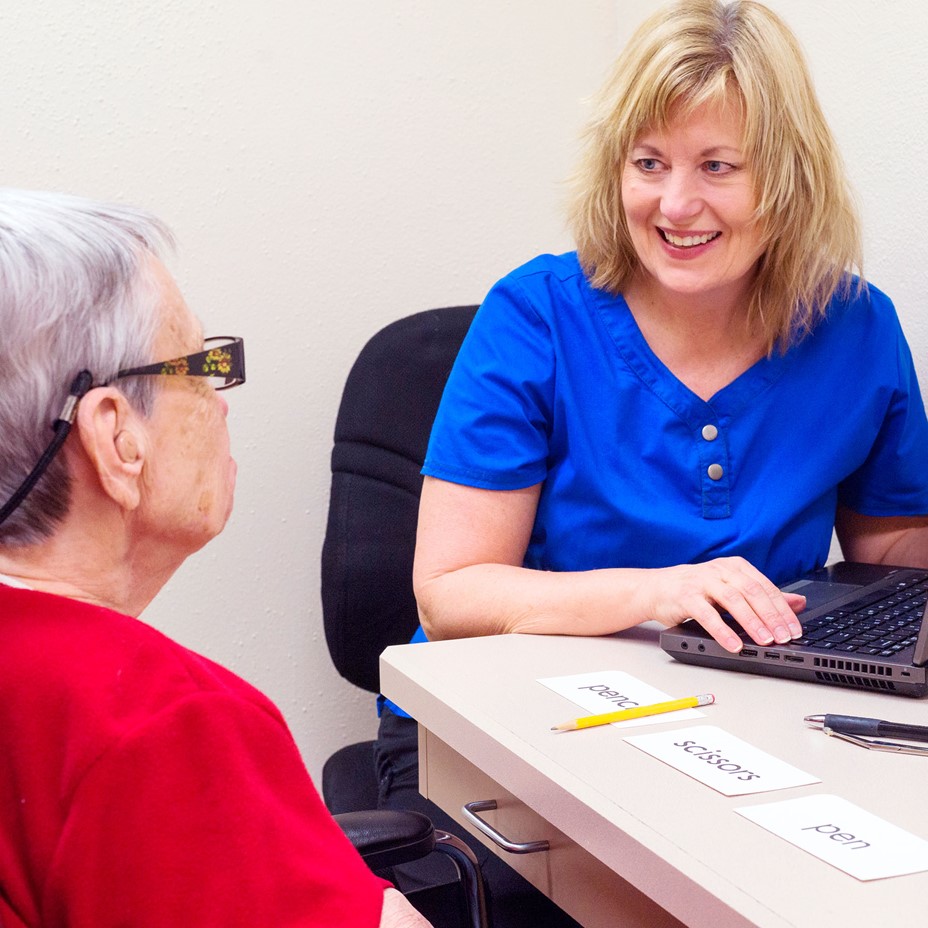Being a speech-language pathologist means:
- Practicing in a rewarding and constantly evolving field;
- Helping people of all ages by assessing their needs in various situations, to provide them with adapted and comprehensive services that will facilitate their ability to communicate, learn or swallow;
- Making a difference in the social, educational, or professional integration of individuals;
- Engaging your scientific mindset and creativity;
- Having the opportunity to work in a variety of settings and contexts, and with various professionals and stakeholders.
« Did you know that 80% of children with emotional or behavioural difficulties also have language impairments? »
Multiple Professional Perspectives
In addition to their more common roles as clinicians or counsellors for children, speech-language pathologists work with people of all ages, from newborns to seniors. They may be involved in promotion as well as prevention, assessment, or rehabilitation of speech, language, communication, learning or swallowing. They can also act as consultants, managers, instructors, researchers, teachers, or entrepreneurs.
VARIOUS PRACTICE SETTINGS
Speech-language pathologists work in a variety of institutions within the education and health and social services systems. They may also practice in the private sector, daycare services, universities, research centres, as well as in public and parapublic organizations.
Within all of these work settings, speech-language pathologists collaborate with a variety of specialists and professionals, such as audiologists, community organizers, dentists, dieticians librarians, educators, guidance counsellors, inhalation therapists, nurses, occupational therapists, orthodontists, patient attendants, pharmacists, physicians, physiotherapists, psychoeducators, psychologists, resource teachers, social workers, teachers, etc., and, most importantly, with clients and their families.
Education Sector
It is recognized that speech-language pathologists practicing in the education system maximize students’ independence and enable them to reach their full potential.
Healthcare Sector
The speech-language pathology profession and its important role in supporting the development and social participation of children, adolescents, adults, or seniors who have difficulties with speech, language, communication, or swallowing are increasingly recognized.
For example, older adults are at greater risk of developing speech, language, communication or swallowing difficulties.
In addition, premature babies and victims of trauma or stroke may have speech therapy needs.
Private Sector
Private practice allows for greater professional autonomy and management of one’s schedule while providing services adapted to the needs of the population.

A REGULATED PROFESSION
Speech-language pathology is a profession with a reserved title and activities. This means that no one may use the title “speech-language pathologist” or lead anyone to believe that they are a speech-language pathologist if they do not hold a valid permit and if they are not registered on the membership roll of the Ordre des orthophonistes et audiologistes du Québec. Therefore, only registration on the Order membership roll grants the right to practice the profession, not the diploma.
EDUCATIONAL REQUIREMENTS
Graduate-level diplomas (Master’s degrees) from a Quebec university leading to a permit to practice issued by the Order
In Quebec, a master’s degree program in Speech-Language Pathology is offered at four universities:
Video on the equivalence precess for obtaining a practice permit
Consult this informative video to help you in your training or diploma equivalence process. The topics covered are the preparation of the file, the filing and processing of the request, the decision and possible appeals, the available ressources, and more.